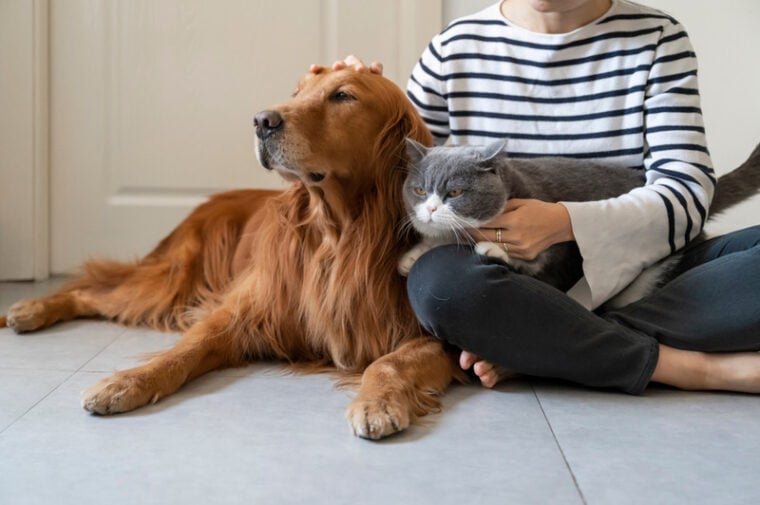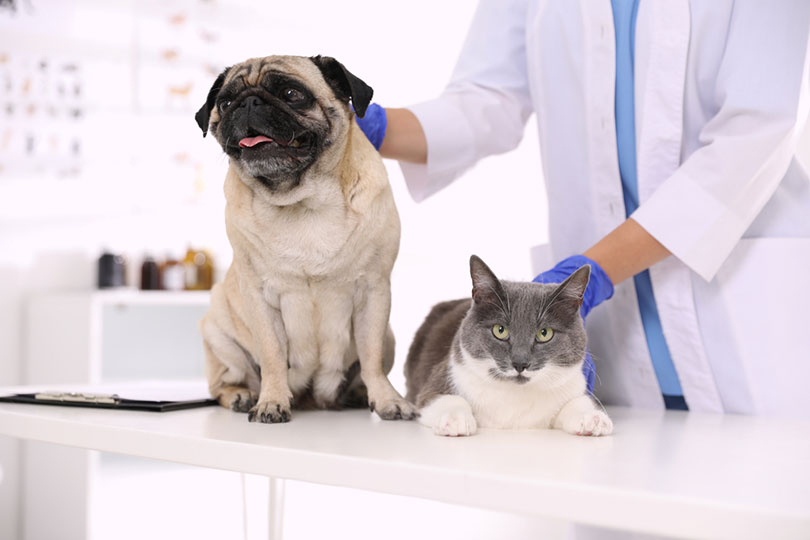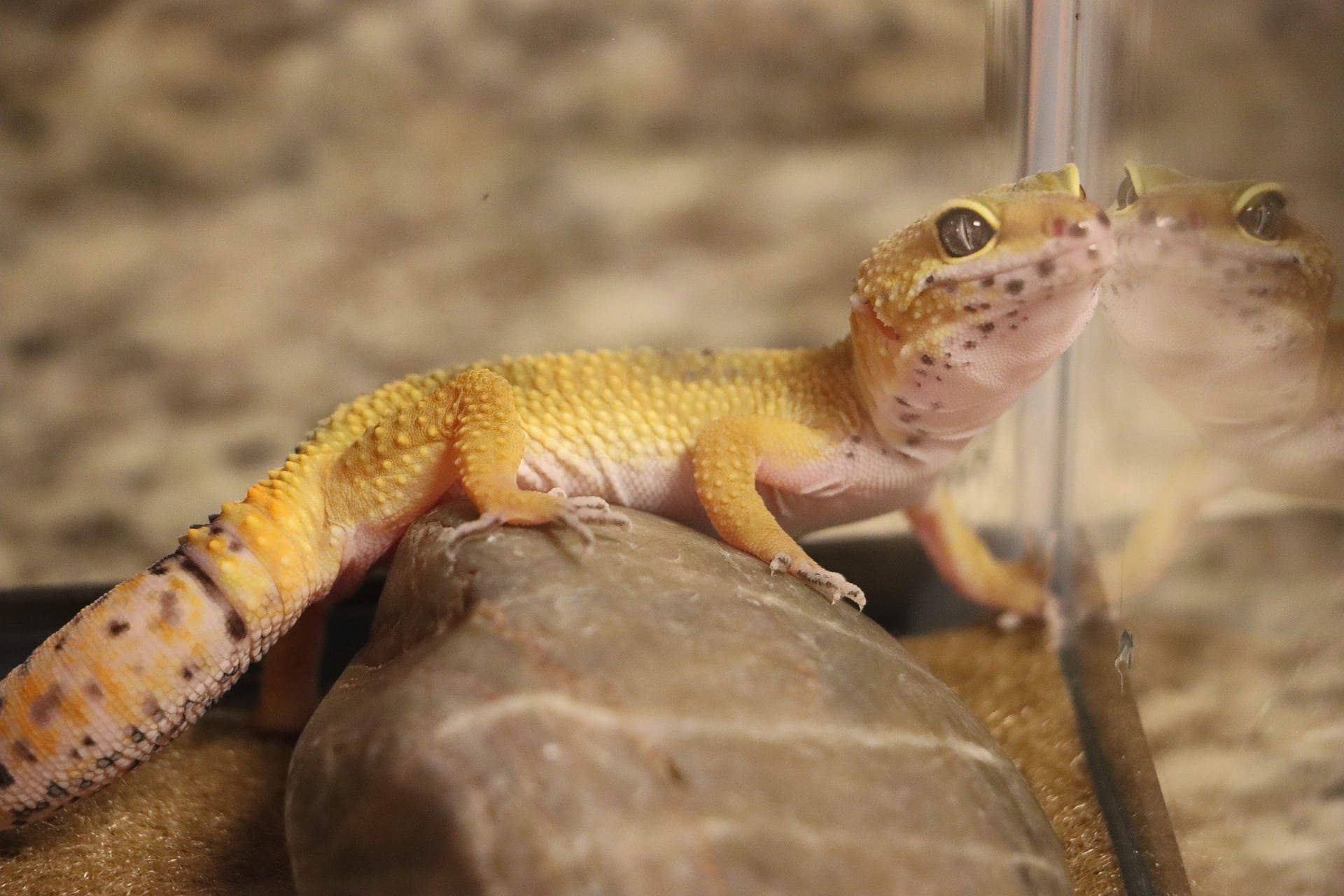
National Animal Poison Prevention Week is an annual event held during the third full week of March each year, from March 19th to 25th in 2023. This week helps educate pet owners on what can poison their pets, how to spot the signs of poisoning, and how to help pets if they exhibit such signs. The goal is to raise awareness about potential pet poisonings and provide steps for prevention. Let’s learn more about Pet Poison Prevention Week in this article.
Why Is Pet Poison Prevention Week Important?
The American Society for the Prevention of Cruelty to Animals (ASPCA) Animal Poison Control Center estimates that each year more than 200,000 pets in the United States are victims of accidental poisoning. Common household items such as cleaners, plants, human medications, and even food can be toxic to pets.
Pet Poison Prevention Week is important for pet owners for a number of reasons. Firstly, people need to know what items are potentially dangerous for their pets so they can prevent them from coming into contact with these substances. Secondly, it’s crucial that pet owners understand the signs of a pet poisoning so that they can seek immediate help if necessary. Finally, the event serves as a reminder for people to take proactive steps to keep their pets safe and healthy.

How Can People Participate?
Pet Poison Prevention Week is an opportunity for people to raise awareness about pet poisonings and promote preventive measures.
By becoming informed and raising awareness, people can ensure that their beloved pets are safe from accidental poisonings.

Pet Poisoning Statistics
Pet poisoning is a serious issue that can have devastating consequences.
 What Are Some of the Most Common Pet Poisonings?
What Are Some of the Most Common Pet Poisonings?
Some of the most common pet poisonings include chocolate, rodenticides, human medications, insecticides, and plants. Additionally, pets can become sick by ingesting sharp objects such as coins or buttons. Keep these items out of reach from curious pets to avoid any potential danger.

What Are the Signs of Pet Poisoning?
Depending on the type of poison, signs of poisoning can vary. Some common signs include vomiting, diarrhea, difficulty breathing, excessive drooling or foaming at the mouth, loss of appetite, and lethargy. If you notice any of these signs in your pet, contact a veterinarian or animal poison control center right away.
What to Do If You Suspect Your Pet Ingested a Poisonous Substance?
If you suspect that your pet has ingested something dangerous, it is important to act quickly and seek medical attention from your veterinarian or an animal poison control center. In most cases, it is best to stay calm and contact the experts for help. Do not try to make your pet vomit, as this can cause more harm than good. Additionally, it is important to bring a sample of the substance or its packaging with you when seeking medical help for your pet.

 The 10 Tips for Pet Poison Prevention
The 10 Tips for Pet Poison Prevention
This National Animal Poison Prevention Week, it’s important to remember that prevention is the best way to keep your beloved pet safe. By implementing some of these tips, people can significantly reduce the risk of their pets being exposed to potentially toxic items and substances.

What Else Can Pet Owners Do to Be Prepared?
Yes, it is a good idea for pet owners to contact their local vet’s office or animal poison control center for resources on how to handle potential poisoning emergencies before they occur. Keep their number handy in case of an emergency, and make sure all pets are properly tagged with updated contact information. It is also important to familiarize yourself with the signs of pet poisoning and how to react quickly in an emergency situation. Finally, spread awareness about pet poisonings by talking to friends and family or through local events or posters.
Is There Anything Else I Need to Know About Pet Poisonings?
Pet owners should be aware that some of the most common pet poisonings are preventable. Being prepared and staying informed can help pet owners protect their furry friends from potential danger. Knowing what to look out for and how to act quickly in order to get proper medical attention is key in these situations, so it’s important to take the necessary steps to be prepared.

Conclusion
Pet Poison Prevention Week, occurring during the third week of March every year, is a great opportunity to remind pet owners of the potential dangers of pet poisonings, as well as how to prevent them. By spreading awareness and taking proactive steps such as researching what items are safe for pets, being mindful of plants in your home, and knowing the signs of poisoning, we can all help keep our beloved pets safe from harm.
- Related Read: Pet Poison Prevention Awareness Month: How to Prepare
Featured Image Credit: Chendongshan, Shutterstock


 What Are Some of the Most Common Pet Poisonings?
What Are Some of the Most Common Pet Poisonings?






